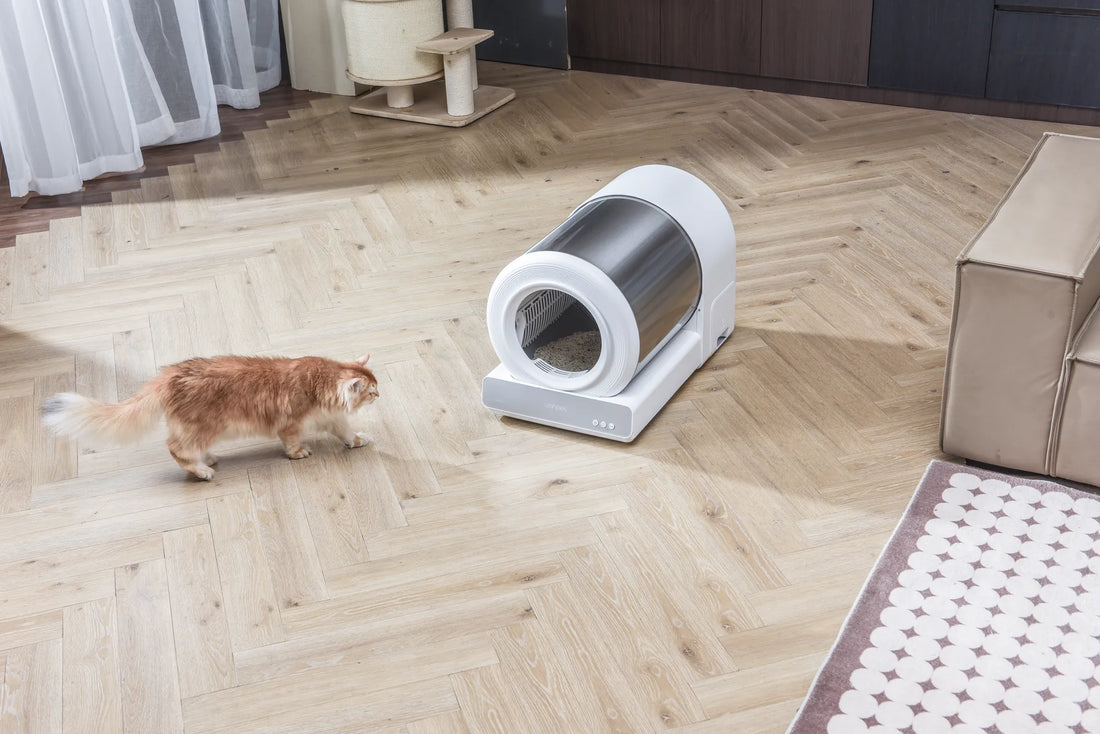If you've noticed your senior cat spending an unusual amount of time laying in the litter box, you're likely concerned and wondering what could be causing this behavior. While it might seem odd, there are several potential reasons why your older feline friend might be doing this. Understanding these reasons can help you address the issue and ensure your cat's well-being.
Possible Medical Issues
One of the most common reasons why a senior cat might lay in the litter box is due to underlying medical issues. As cats age, they become more susceptible to various health problems that could lead to this behavior. Some of the medical conditions to consider include:
- Urinary Tract Infections (UTIs): UTIs can cause discomfort and pain during urination, leading your cat to associate the litter box with relief. They might lay in it to stay close to the source of relief.
- Kidney Disease: Kidney issues are common in older cats and can lead to increased urination. Your cat might lay in the litter box because they feel the need to urinate frequently.
- Arthritis: Arthritis can make it difficult for your cat to move around comfortably. The litter box might become a resting spot because it's easily accessible and doesn't require much movement.
- Constipation or Diarrhea: Digestive issues can cause your cat to spend more time in the litter box, as they might feel the need to defecate frequently or experience discomfort.
Behavioral and Psychological Factors
In addition to medical issues, behavioral and psychological factors can also contribute to your senior cat laying in the litter box. Cats are creatures of habit, and changes in their environment or routine can lead to stress and anxiety, which might manifest in this behavior. Some possible factors include:
- Stress or Anxiety: Changes in the household, such as the introduction of a new pet or family member, can cause stress. Your cat might seek comfort in the litter box as a safe space.
- Territorial Behavior: Senior cats might lay in the litter box to mark their territory, especially if they feel threatened by other pets in the home.
- Cognitive Dysfunction: Older cats can experience cognitive decline, similar to dementia in humans. This can lead to confusion and unusual behaviors, such as laying in the litter box.
Environmental Considerations
The environment in which your cat lives can also play a role in this behavior. Ensuring that your cat's living space is comfortable and stress-free is essential for their overall well-being. Consider the following environmental factors:
- Litter Box Cleanliness: If the litter box is not cleaned regularly, your cat might lay in it to avoid stepping on soiled litter. Ensure that the litter box is cleaned daily to provide a comfortable environment.
- Litter Box Location: The placement of the litter box can affect your cat's behavior. If it's in a quiet, easily accessible location, your cat might feel more comfortable using it as a resting spot.
- Multiple Litter Boxes: If you have multiple cats, ensure that there are enough litter boxes available. Competition for resources can lead to stress and unusual behaviors.
How to Address the Issue
If you've noticed your senior cat laying in the litter box, it's important to take action to address the underlying cause. Here are some steps you can take:
- Consult Your Veterinarian: The first step should always be to consult your veterinarian. They can perform a thorough examination to rule out any medical issues and provide appropriate treatment if necessary.
- Monitor Your Cat's Behavior: Keep an eye on your cat's behavior and note any changes. This information can be helpful for your veterinarian in diagnosing the issue.
- Create a Comfortable Environment: Ensure that your cat's living space is comfortable and stress-free. Provide plenty of resting spots, toys, and a clean litter box.
- Consider Behavioral Therapy: If stress or anxiety is the cause, consider working with a feline behaviorist to address the issue. They can provide strategies to help your cat feel more secure.
Understanding why your senior cat is laying in the litter box is the first step toward addressing the issue. By considering medical, behavioral, and environmental factors, you can take the necessary steps to ensure your cat's health and happiness. Remember, your veterinarian is your best resource for diagnosing and treating any underlying issues. With the right care and attention, you can help your senior cat feel more comfortable and secure in their environment.

![[🎃Halloween Sale]UAHPET Stainless Steel Self-Cleaning Cat Litter Box](http://www.uahpet.com/cdn/shop/files/1-cat-litter-box.jpg?v=1761890851&width=1600)












